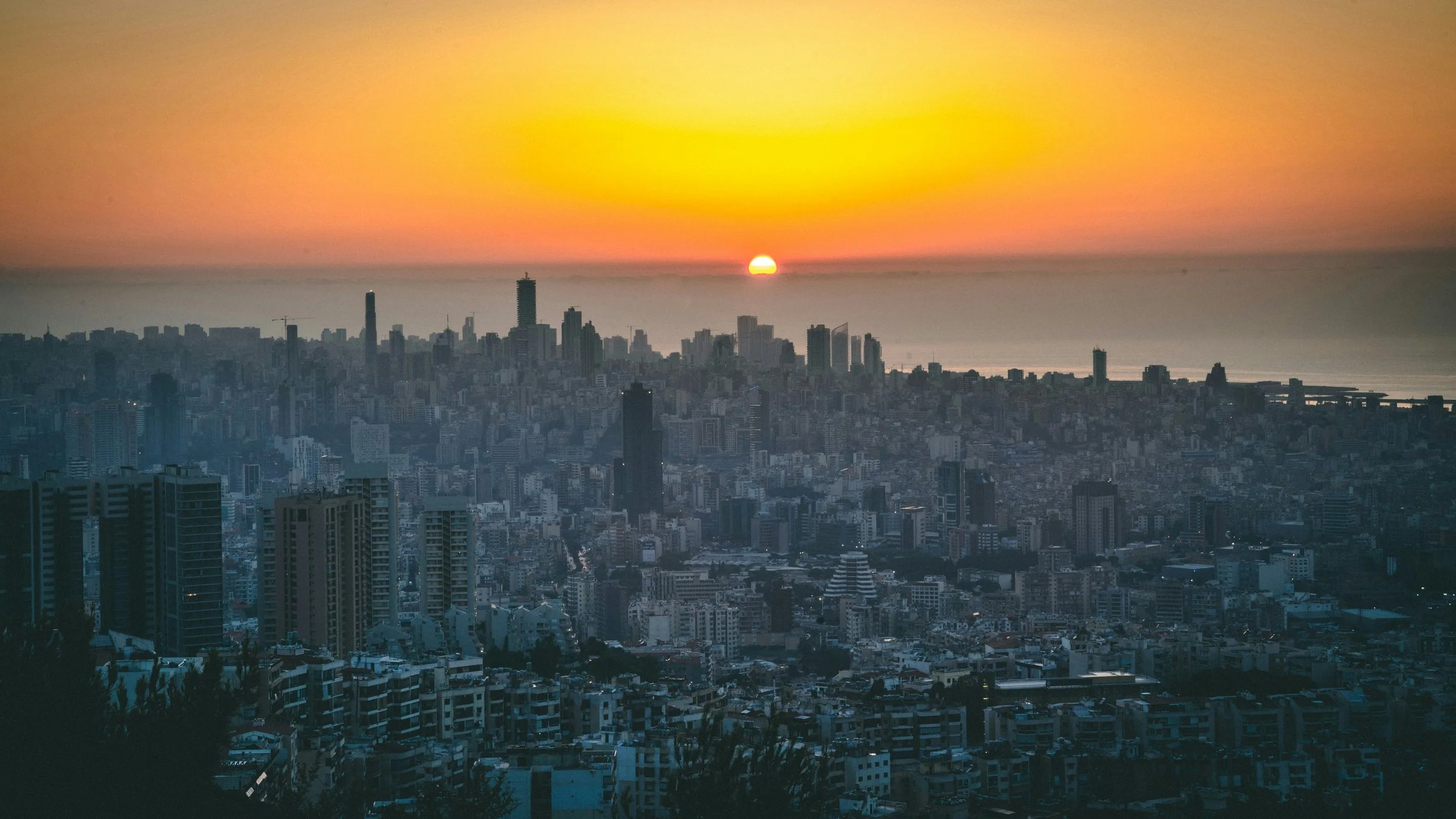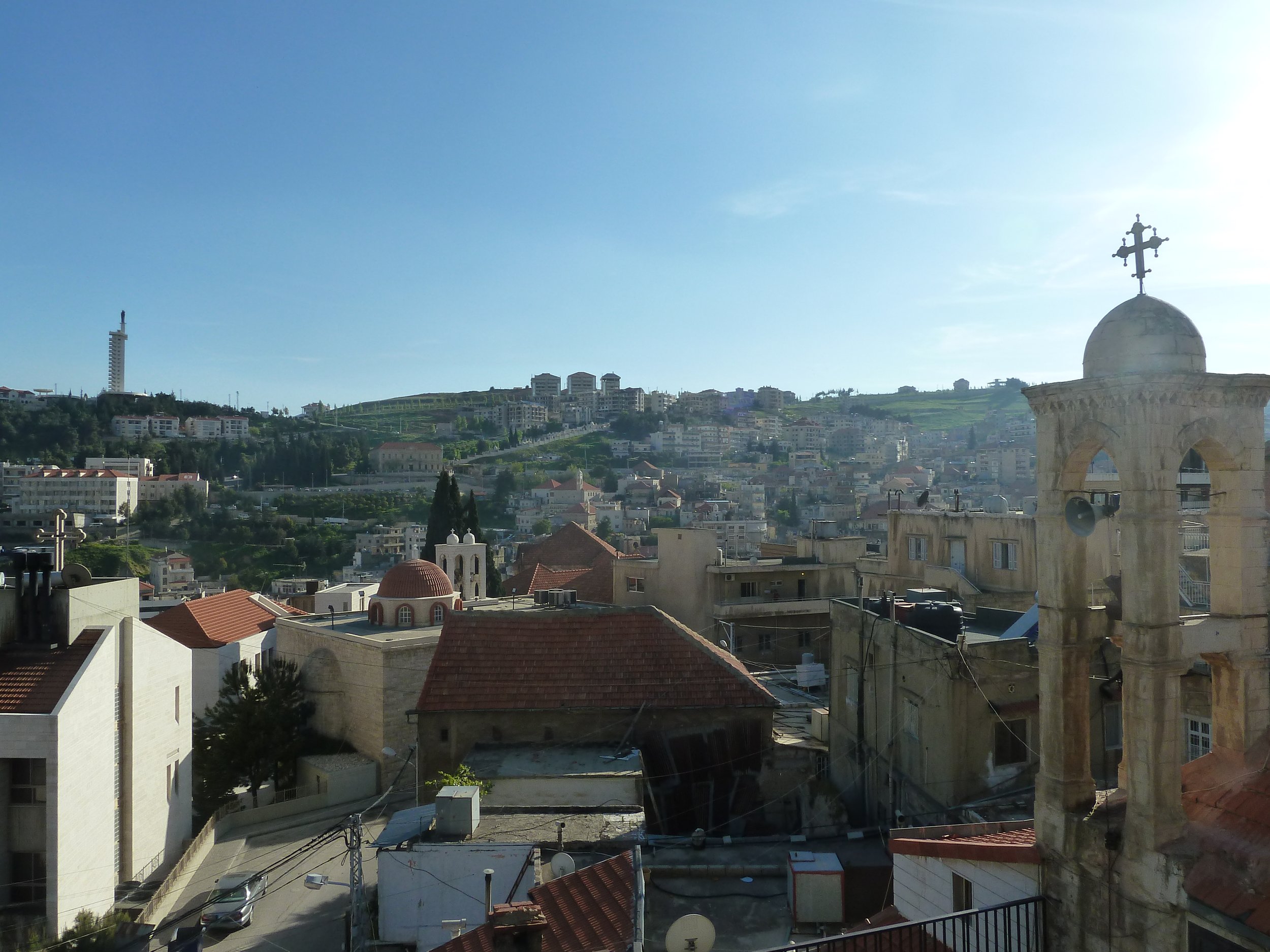As war looms in Lebanon, God remains in control
July 2024
Beirut skyline at sunset. Credit: Sara Calado (via Unsplash)
On 30 July 2024, Israel carried out a strike on southern Beirut, which it says killed a senior Hezbollah commander. This was done in retaliation to the weekend’s deadly attack on the Golan Heights. The strike took place very close to where three of our partner organisations are located. Thankfully, all of the staff and their families are safe, but the attack has raised further questions and fears for the future. Was this a one-off hit, or is it the start of something bigger and more dangerous?
In this blog, staff at Embrace’s partner Thimar discuss what it’s like to live with the threat of war in Lebanon and wrestles with why God is allowing the bloodshed and destruction to persist. It also gives some specific prayer points so that you can join in interceding for the region.
In difficult times, we face difficult questions.
Great uncertainty once again hangs over Lebanon and the wider Middle East. The weekend attack on a Druze community in the Israeli-occupied Golan Heights (27 July 2024), followed by a retaliatory strike on southern Beirut by Israel (30 July), has brought Israel and Hezbollah closer to war than at any other moment since October 7. Since the start of hostilities in October, both sides have said they do not want a full-scale war, but each new tit-for-tat strikes seems to bring them closer to one.
We have grown accustomed to this uncertainty. This escalating conflict between Hezbollah and Israel is just the latest challenge in a series of crises that include a growing refugee population, an ongoing economic collapse, and repeated political gridlock.
Since the start of this conflict, believers in Lebanon have prayed for a ceasefire. Day after day, we have read and seen images of the bloodshed in Gaza while also enduring Israeli strikes here in Lebanon. Despite our prayers for peace, the conflict rages on. With ceasefire talks struggling to make headway, there appears to be no end in sight. Yet paradoxically, life continues and thrives in Beirut and other parts of the country. Diaspora continue to visit for their annual summer vacations as patrons fill cafes, restaurants, and shops. Here at Thimar, our ministries continue to help communities and local churches, meeting needs and sharing the Gospel with people eager to hear the Good News.
But drive just an hour or so south of Beirut, and one enters a different world. A growing number of villages lay deserted, damaged and destroyed. Nearly 100,000 people in Lebanon have been displaced, and hundreds have been killed. While most of them have been fighters belonging to Hezbollah and its allies, more than a hundred civilians have also died, and nearly 2,000 others have been injured.
Acquainted as people in Lebanon might be with conflict and crisis, weariness and war-fatigue affect everyone. As the conflict worsens, our faith is tested. Why, in God’s justice and mercy, does He allow this war to continue? Why does He allow the bloodshed and destruction to persist?
Such questions are genuine. Since Adam and Eve, people have questioned God and failed to understand His plans. Reading stories of Biblical characters whose faith was shaken by adversity, we may easily scoff at their unbelief. But put ourselves in their shoes, and we see that we are not so different. We grow weary. We say that we trust God, but when challenges arise, our feet tremble, our hearts become weak.
In times like these – these difficult, uncertain, confusing, challenging, fearful times – we must lean deeper into faith in God, into His goodness and justice, into His sovereignty and wisdom. We must ask God ever more for His guidance and for His strength to help us navigate an increasingly complicated and confusing world. Thimar, despite all of the conflict and uncertainty, remains committed to staying in Lebanon, to be a beacon of hope and a support to the local church in the Arab world. At such a critical time, we believe our presence and our work, supported by God, is crucial.
For the past several years, crises have tested our faith. In each one, we have sought to put our trust in God, knowing that He is sovereign over all things. Once more, we find ourselves needing to do so. Though it is not always easy, we have seen how He works amid darkness and destruction to bring about good. In these times of tribulation, we trust that He continues to stand with us, worth with us and through us to achieve His will. And so we stand firm in Him, ready to love, serve, and sacrifice in Lebanon and across the Middle East.
Join us in prayer for:
An end to regional hostilities and a lasting resolution to the Israel-Palestine conflict.
Repentance and wisdom from above for those whose decisions and actions are causing so much pain and suffering. May their hearts - and ours - “be broken with the things that break the heart of God” (Bob Pierce).
Effective Christian presence - that the Church may genuinely serve as an agent of peace, of justice, of hope, and of transformation.
You may also enjoy reading:
LOVE THY NEIGHBOUR: THE LEBANESE CHURCH SERVING SYRIAN REFUGEES
With a marked rise in intolerance and even violence towards Syrian refugees in Lebanon, one church in the Beqaa Valley is going against the grain and choosing to walk in the paths of love…


